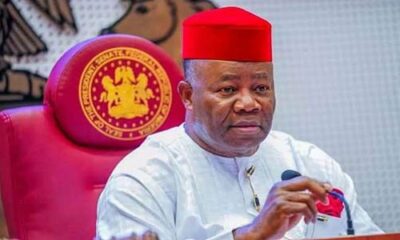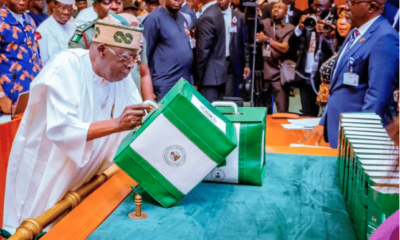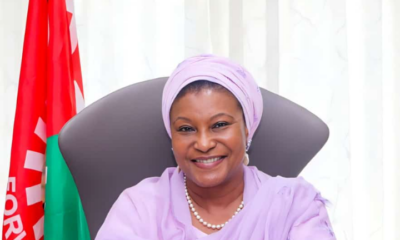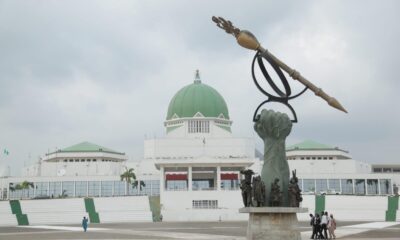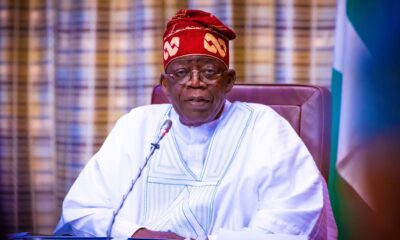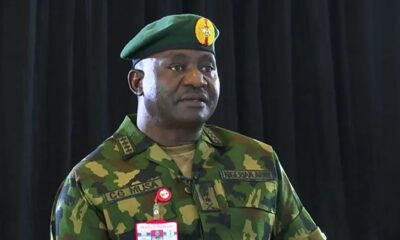Benue news
Benue 2023: Akase not too Young to Run

President Muhammadu Buhari on May 31, 2018 signed the “Not Too Young To Run” bill into law. The new law is aimed at relaxing some of the stringent and discriminatory provisions of the constitution.
The bill was passed by the National Assembly last year to alter Sections 65, 106, 131, 177 of the constitution. It was to reduce the age qualification for president from 40 to 30; governor from 35 to 30; senator from 35 to 30; House of Representatives membership from 30 to 25 and State House of Assembly membership from 30 to 25.
The ‘Not too Young to Run’ Act, has automatically reversed widen the political space for youth participation. Prior to the law, youths in Nigeria were confronted with the systemic barrier of age which has limited their active participation in politics as electoral candidates. This barrier was largely created by long years of military rule and the efforts of the ruling class to halt any intrusion into its class especially by members of the younger generation. The result was that the Nigerian youth population displayed political apathy because they felt excluded from the political institutions where resources are authoritatively allocated.
The youth have been recognized for their creative skills and innovative ideas. A critical look at the major political changes and dynamism shows that youth are at the center of the fulcrum. They mostly serve as catalysts for the changes of undemocratic governments and their political systems. The 2011/2012 Arab uprising is case in point. However, due to unfavorable legal architectures, low economic conditions and different discriminatory practices, their contributions and roles in the political arenas were extremely limited.
As a result, their involvement in the political process is informal and not yet well recorded. Given the fact that Africa is young in democracy and its political institutions are not well established, youth are excluded from important decision making processes. Most often than not, governments and policy makers in Africa are reluctant to include youth in the formal political systems. Nowadays, however; a marginal improvement has been shown in Africa, partly because of the rising consciousness of states and the external pressures including globalization and democratizations, which give due emphasis for the youth participation in the political and economic spheres of influences.
Scholars pointed out that this could be a response to their marginalization and social and economic exclusions. Recent reports of the World Bank and UNDP indicated that the youth accounts for more than seventy percent of the Africa’s population. Yet, regardless of their numerical importance and the historical relevance throughout the region, they have been neglected from political arenas. As a result of lack of political participation of youth within the continent, they are disorganized, unemployed, and vulnerable to radical ideas such that leading demonstrations against government decisions. This has been seen in Sierra Leone, where the disillusioned and unemployed youth had played a great role in establishing the Revolutionary United Front (RUF) and in Rwanda where the youth were at the center in the genocidal.
The prevailing insecurity in the country today under the platforms of Boko Haram insurgency and banditary are the fallout of bad leadership occassioned by long year’s of unemployment and the exclusion of the youths in the scheme of things.
All civilian heads of government were more than 50 years old before they were elected. Nearly two decades after the advent of civilian rule, former military leaders retained a strong influence over politics.
Historically before civilian rule, most of the military heads of state were between the ages of 20 and 45, that is the military regime or era in Nigeria was largely dominated by the youth, ironically after the advent of democracy the same set of military leaders has taken over Nigeria political stage with the youth being marginalized.
The good news today is that the Not too Young to Run’ Act, has now reversed this trend by widening the political space for youth participation. It is now left for the youths to summon courage and grap the opportunity to make a difference in Nigerian politics, as the law has expanded the political field for more potential credible candidates.
It is on this premise that I wholeheartedly welcome the political ambition of the Chief Press Secretary to the Benue State Governor, Mr. Terver Akase, to succeed his principal in 2023.
Born in 1977, Akase, a graduate of Mass Communication from the Benue state university, worked at the Federal Radio Corporation of Nigeria before his appointment as a Senior Special Assistant to the Governor of Benue State. He was later elevated due to his selfless service as the Chief Press Secretary.
Akase who hails from Agbeede, is from the Jechira political bloc, one of the blocs laying claims to the Benue’s Governorship seat.
In terms of age and scholarship, he is eminently qualified to govern Benue State. Least we forget, the late Governor Aper Aku, was born in the year 1938, and was elected as governor in the year 1979, at the age of 41years. The late fr Moses Orshio Adasu was born in the 1945 and was elected as governor in the year 1992 at the age of 47years. He was a Catholic priest.
His excellency, Sen George Akume was born in 1953 and was elected as governor in the year 1999. He was 46years. A civil servant.
His excellency, senator Gabriel Suswam was born in the year 1964 and was elected and came in power in 2007. He was 43 years. A lawyer.
The incumbent governor Samuel Ortom was born in 1961, was elected as governor in 2015 at the age of 54 years. He is a businessman/politician.
Those drumming support for him said he represents the younger generation and an agent of transition between the old and younger generation of Benue politicians.
In terms of experience, Akase having worked in the public service for a period of 10 years and adding to the opportunity of working closely with other governors, he is well placed above other contenders.
Besides, it is said that he has the support of the youths and understands the challenges facing the them. He also show them benevolence especially in areas like education, healthcare, and entrepreneur.
In terms of visionary leadership and forsight, it is publically acclaimed that he was the one who strongly supported his boss for the successful hosting of a youth summit during the ENDSARS protest in the country which succeeded in dousing tension in the state a development that made possible Benue State to witness peace against wanton destruction of property and killing of innocent people as was the case in other states.
As a peacemaker, it is equally gathered that he has on many occasions, played a key role in reconciling his principal with his political opponents, among other contributions.
As a media handler to Ortom, he carries his duties with professionalism and always responds to issues meritoriously, gently and respectfully, as he hardly insults people while trying to set records straight.
His supporters see him as a dedicated servant who in their opinions has served the governor well and should be allowed to step into the shoes of his boss.
To them, he has “washed his hands clean and should be allowed to feast with elders”.
I therefore call on both the youths and older generation in the state to rally round the young man Terver Akase and encourage him to achieve his guber ambition.
By Godwin Tsa, Abuja


